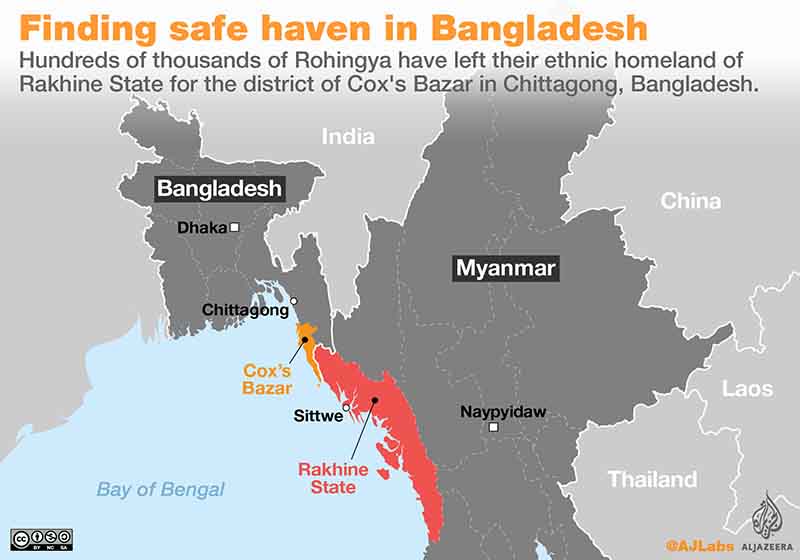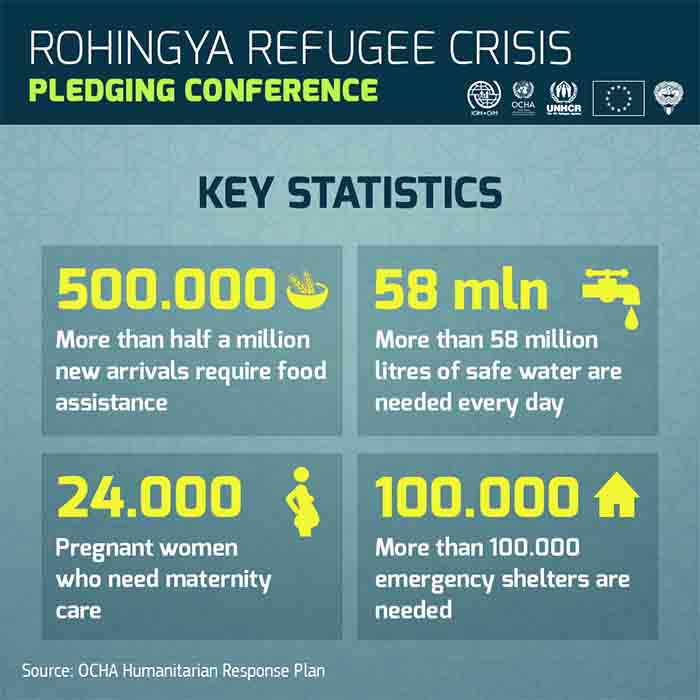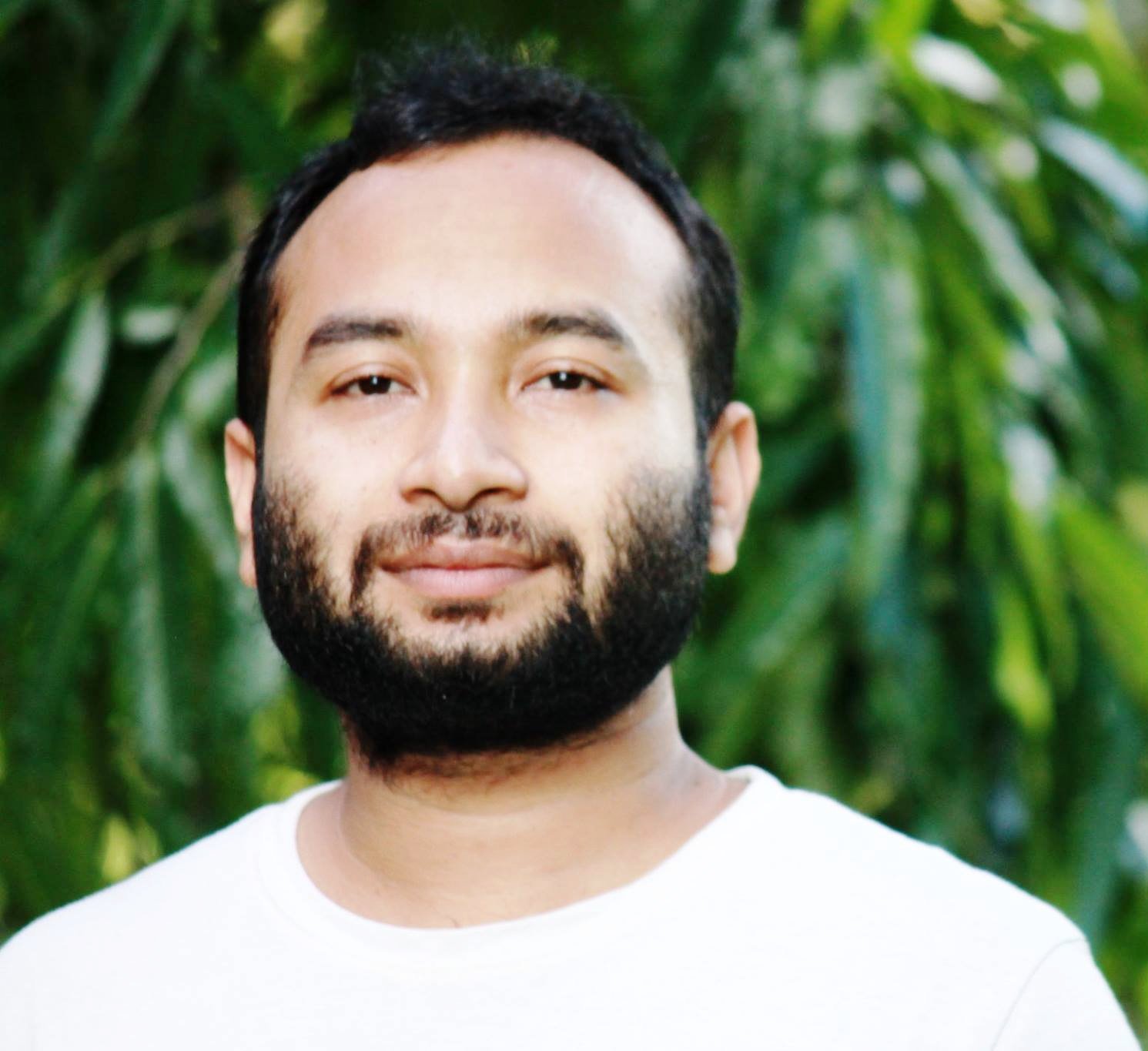For generations, Muslim Rohingyas have faced persecution and discrimination in Myanmar. Even in the time of peace, they do not have access to jobs. They are not allowed to move freely. Most of the time they remain confined within their houses. In the past, they suffered and fled their country many times. The ongoing Rohingya Genocide is not a wholly new phenomenon. Many of us are not aware that more than one million Rohingyas live in Bangladesh today.
Recent crisis began when armed Rohingya fighters fought back in August 2017 by attacking police checkpoints and camps in the Rakhine State of Myanmar. The action led to a brutal crackdown and mass murder by the Burmese military, prompting hundreds and thousands of people to flee into neighboring Bangladesh. Crossing the border was just the beginning of the misery. Now they are struggling to survive in crowded refugee camps in Cox Bazar, Bangladesh. Myanmar military and sympathizers of the government have killed and maimed thousands unarmed Rohingya male, female and children. The horrible and indescribable situation in Rakhine State caused nearly six hundred thousand people to cross the border and take refuge in Bangladesh. Sheer numbers and speed of the Rohingya exodus surpassed all the events in recent time. The Rohingya Genocide and human rights disaster in Myanmar have invoked harsh criticism from many quarters of the international community. The United Nations has called it a “textbook example of ethnic cleansing”.

The international community has expressed concerns about the situation. The Chinese and the Russian vetoes in the Security Council have killed the international attempt to make progress regarding the issue. Myanmar has agreed to take back Rohingyas who have identity cards or citizen certificates. However, Rohingyas do not have any proofs of their citizenship because Myanmar government has been denying their citizenship since 1982. They cannot go home as they do not have papers to validate their citizenship. If somehow they return home, the memories of genocide and destruction will haunt them rest of their lives.

The condition of makeshift camps in Bangladesh is very bad. People are grossly suffering and many are dying due to the unhygienic environment of the camps. The people of Bangladesh and the government have done their best to support the Rohingyas. But we must remember, Bangladesh is a developing country with 160 million people. Bangladesh alone cannot do the heavy lifting. It even struggles to feed its own citizens. The international community must step forward to address the problem. Mounting pressure on Myanmar government from the international community can solve the problem. Myanmar must be forced to take appropriate measures to make the situation normal. Every human being in the world deserves a safe, sound and free life. It is a shame that we are silent. Those of us are most responsible who remain silent during the time of a moral crisis.
What is the meaning of modernity if we cannot protect humanity? The worst crime of all, genocide and ethnic cleansing are taking place but we are still bystanders and silent beholders. The gloomy and horrifying conclusion is that no one really cares if the Rohingyas live or die. A large part of the international community is still confused and divided over their narrow self-interests.

Md. Aslam Hossain is a part-time senior editor of The Geopolitics. He is also an entrepreneur. He has earned his Bachelor of Arts and Master of Arts in International Relations. His focus is on geopolitics and security.

